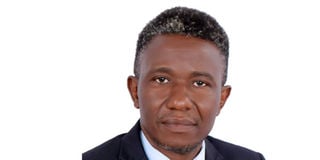Prime
Human Rights Commission: With friends like these, why do we even need enemies?

Author, Gawaya Tegulle. PHOTO/FILE
What you need to know:
- It is one thing to be of no use; quite another if you are also sleeping with the enemy and no longer ashamed to conspire against the people you are supposed to protect.
Some simple advice – you’ll thank me later.
English teachers all over the country who are finding problems making the kids understand what a “white elephant” is, should simply ship the little rascals to the nearest branch of the Uganda Human Rights Commission for a tour. This, I believe, is what the new education curriculum is all about – cutting on abstract theoretics and enhancing learning through applied didactics.
And anyone scratching their head as they wonder what exactly the Uganda Human Rights Commission (UHRC) has done for this country and whether we still need it, will quickly run out of hair. Stand advised!
When the new chairperson of the Commission, Ms Mariam Wangadya, came out to caution individuals who are “trying to tarnish the name of security agencies by portraying them as the leading abusers of human rights in Uganda”, few knowledgeable people were shocked. It was the ultimate verification of a disconcerting hypothesis we have entertained for years: that the Commission is a big institution, nicely fat and heavily funded that is completely and absolutely useless to the cause of Uganda’s people, but difficult to get rid of. Ms Wangadya only removed all remaining doubt.
It is the feeling you get as a girl-child when a woman you all along thought was your mother comes out to warn you against portraying a manifestly abusive stepfather in bad light by claiming that he rapes you every night – because your lamentations are spoiling her marriage.
It is one thing to be of no use; quite another if you are also sleeping with the enemy and no longer ashamed to conspire against the people you are supposed to protect.
UHRC is one of the best funded institutions in this country and as a matter of fact, if you want to count the money that is sank into UHRC, from the taxpayers and international development assistance, you’ll get confused. It’d be much safer and far more prudent to simply borrow a weighing scale (please don’t tell anyone you have never read Ali Baba and the Forty Thieves), put the wretched sacks of money thereon and have an experienced chap (yellow helmet, blue overalls and white gumboots) dutifully record the monies that flow into the Commission in terms of kilogrammes per day and metric tonnes per month.
UHRC is a great place to work: nothing to do all day, save record complaints you’ll do nothing about if they are political, then attend meetings about this and that, then fly out to American and European capitals. In between, you can do a masters or PhD programme at some fancy university overseas. As a human rights watchdog, you are expected to neither bark nor bite; just whine a little, run around a bit and when your master the appointing authority shows up at some function, wag your tail and welcome him with fancy and flourish.
At year’s end, compile some nice report – without annoying the appointing authority, lest he forbear to renew your contract or when your term is over, declines to deploy you to another white elephant. Then present the report to Parliament and ask for more money. And just like that, everyone is happy. It is not a good idea to try to be a hero by pointing fingers: the powers that be might send another white elephant – Inspector General of Government – to ask some unpleasant questions about certain indiscretions that you are not particularly anxious to have people know about.
So on one hand we have a Judiciary which, is for all intents and purposes, sometimes serves the interests of the regime, regularly handing out judgments that are completely at odds with the law and public interest. Then on the other, you have UHRC coming out explicitly to say things that are diametrically antithetical and completely adversative to its Constitutional mandate.
It a sad but very accurate summation of the narrowing of the civic space; for the very institutions that are meant to protect the common man against the excesses of a repressive regime are now tools of subjugation and agents of tyranny.
With friends like these, do we even need enemies?
Mr Tegulle is an advocate of the High Court of Uganda




